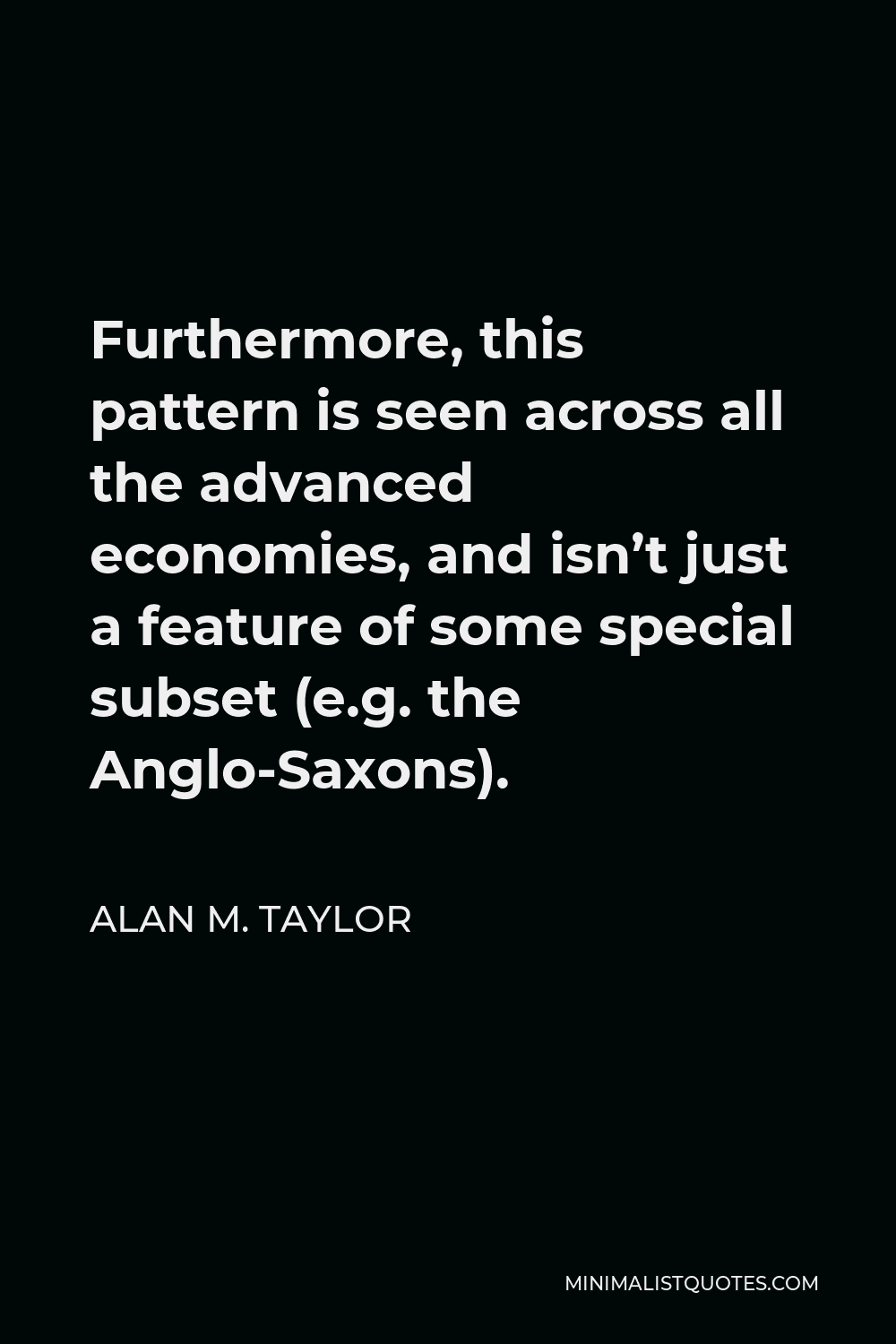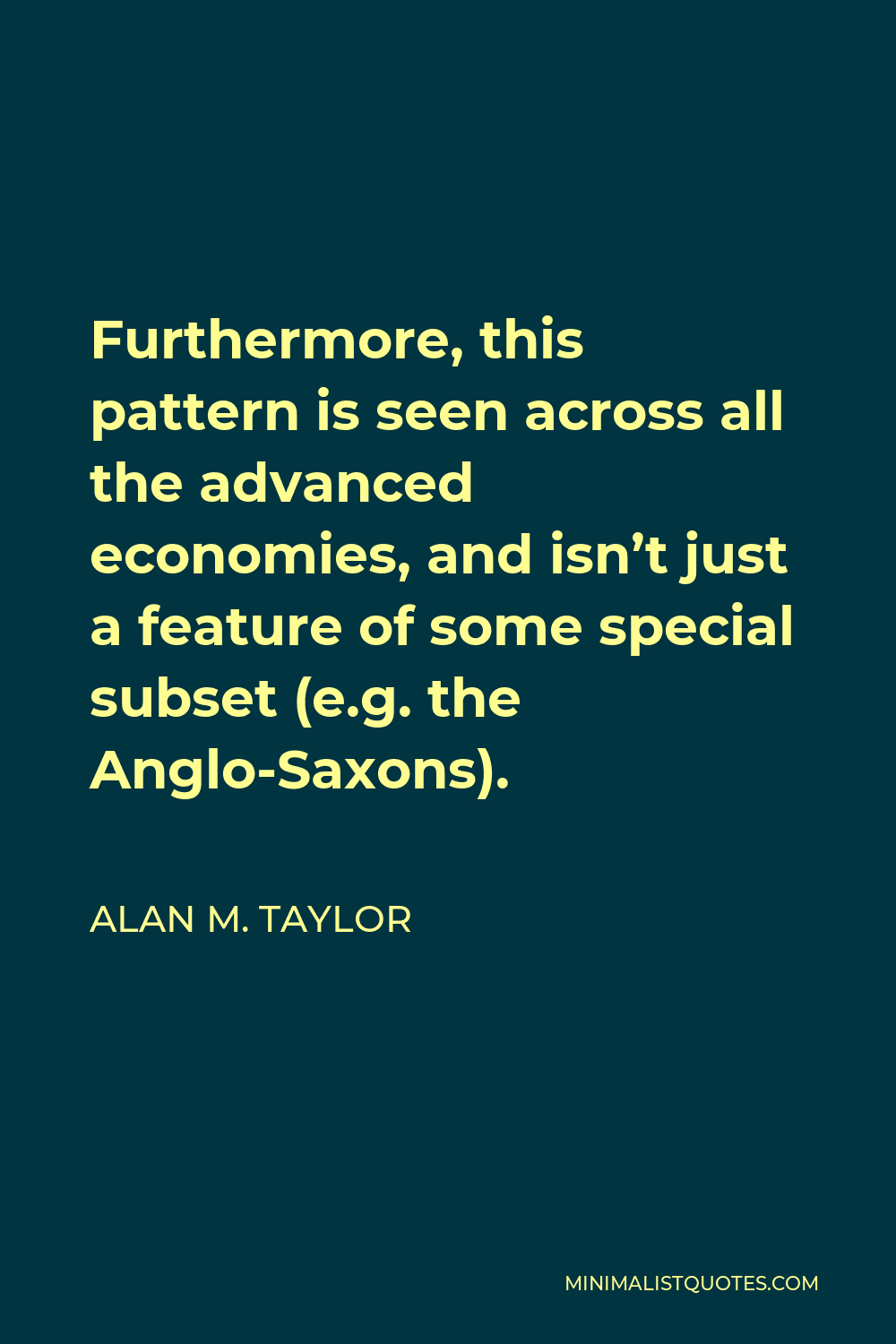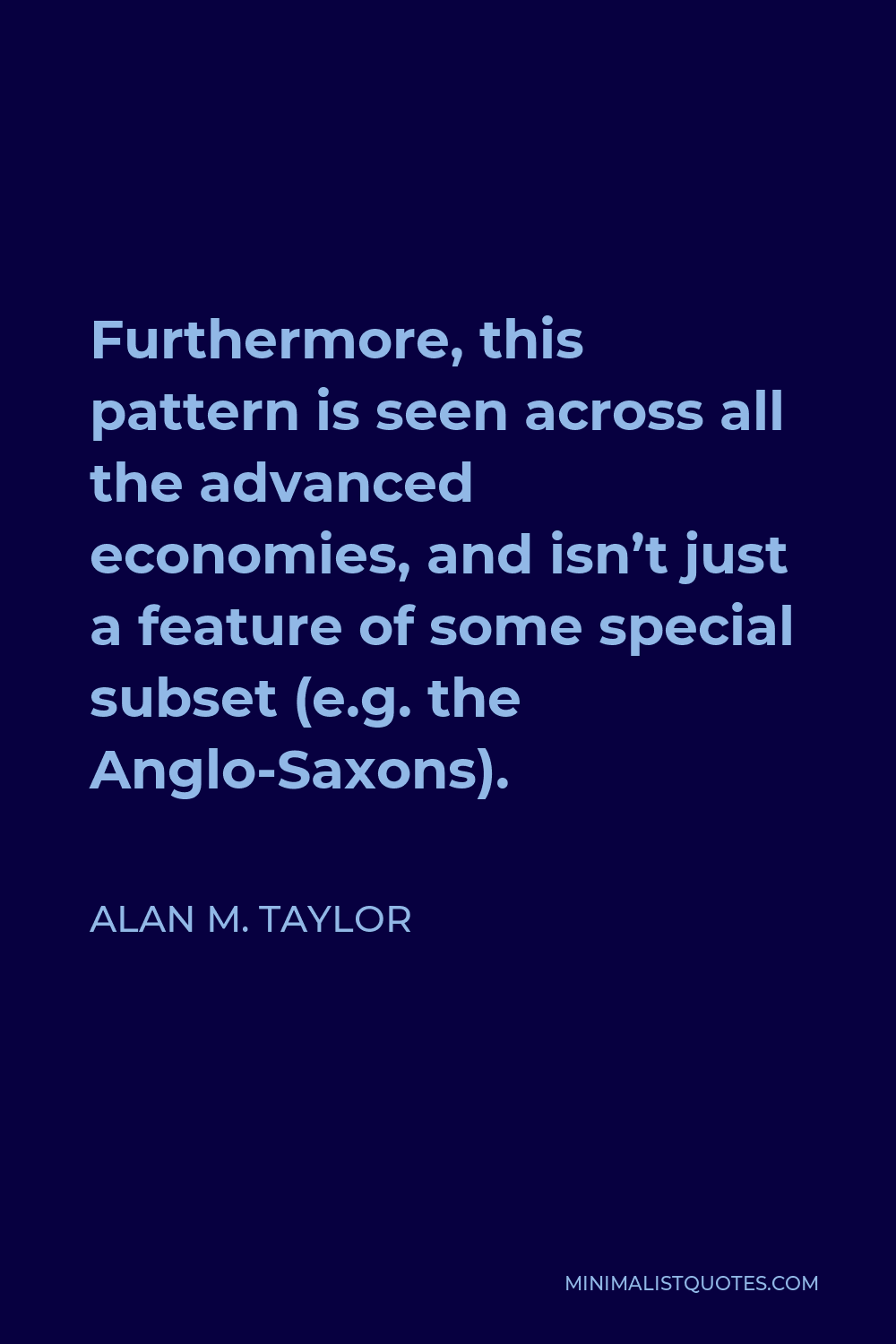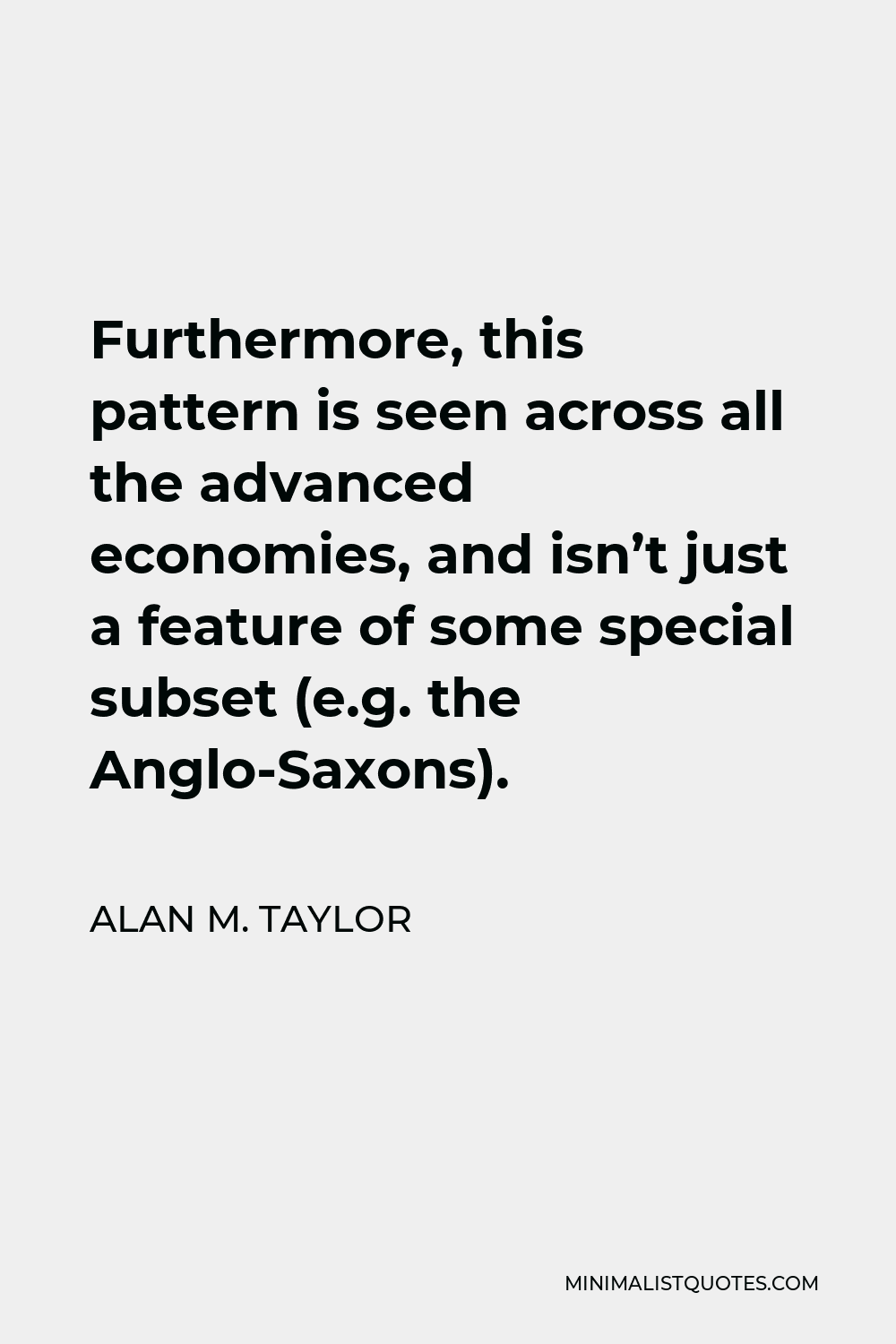Eventually the banking systems of all advanced economies reach magnitudes of 500 percent,
ALAN M. TAYLORFurthermore, this pattern is seen across all the advanced economies, and isn’t just a feature of some special subset (e.g. the Anglo-Saxons).
More Alan M. Taylor Quotes
-





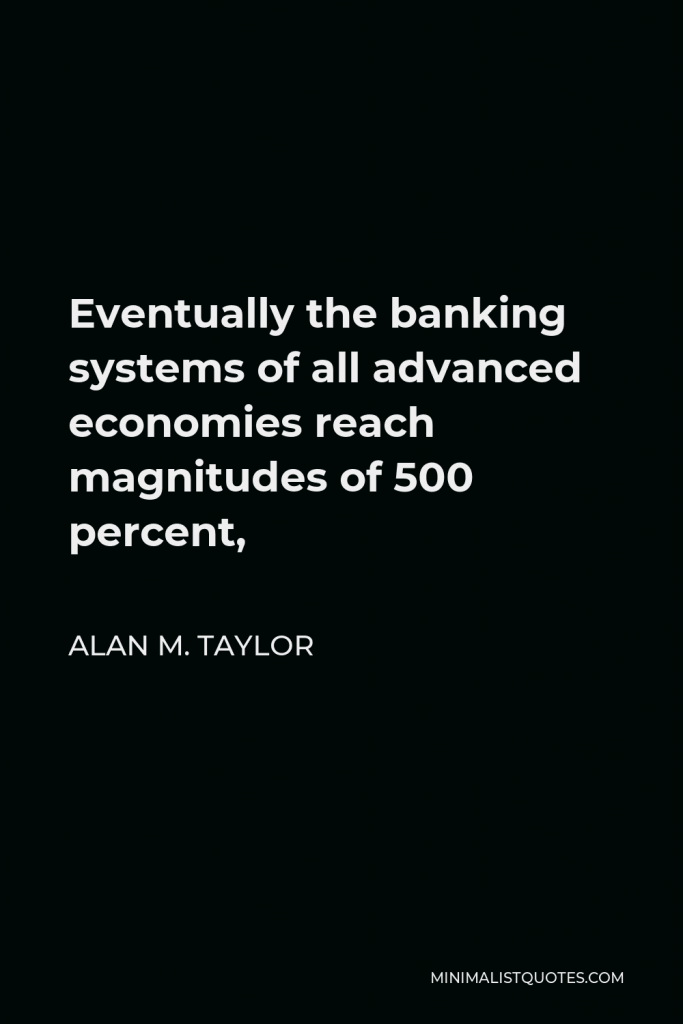

-





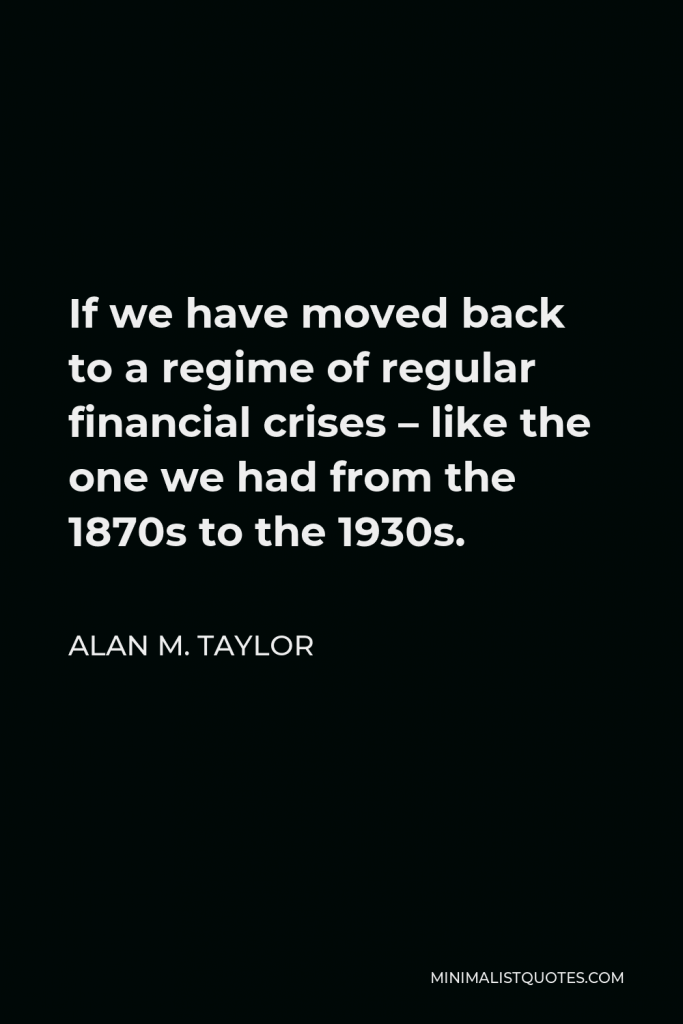

If we have moved back to a regime of regular financial crises – like the one we had from the 1870s to the 1930s.
ALAN M. TAYLOR -





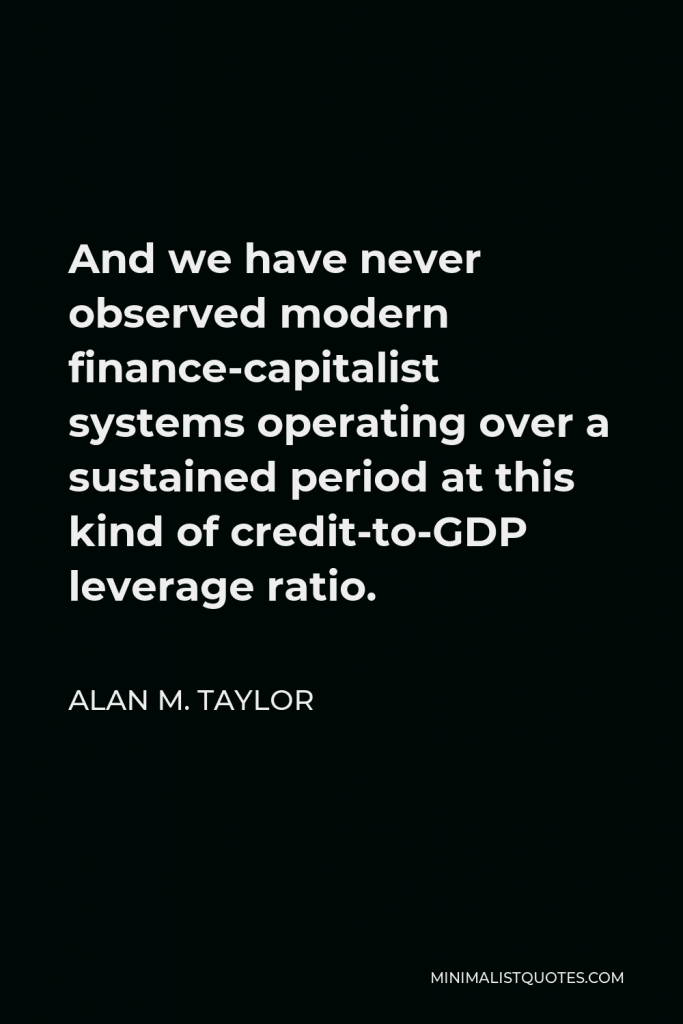

And we have never observed modern finance-capitalist systems operating over a sustained period at this kind of credit-to-GDP leverage ratio.
ALAN M. TAYLOR -





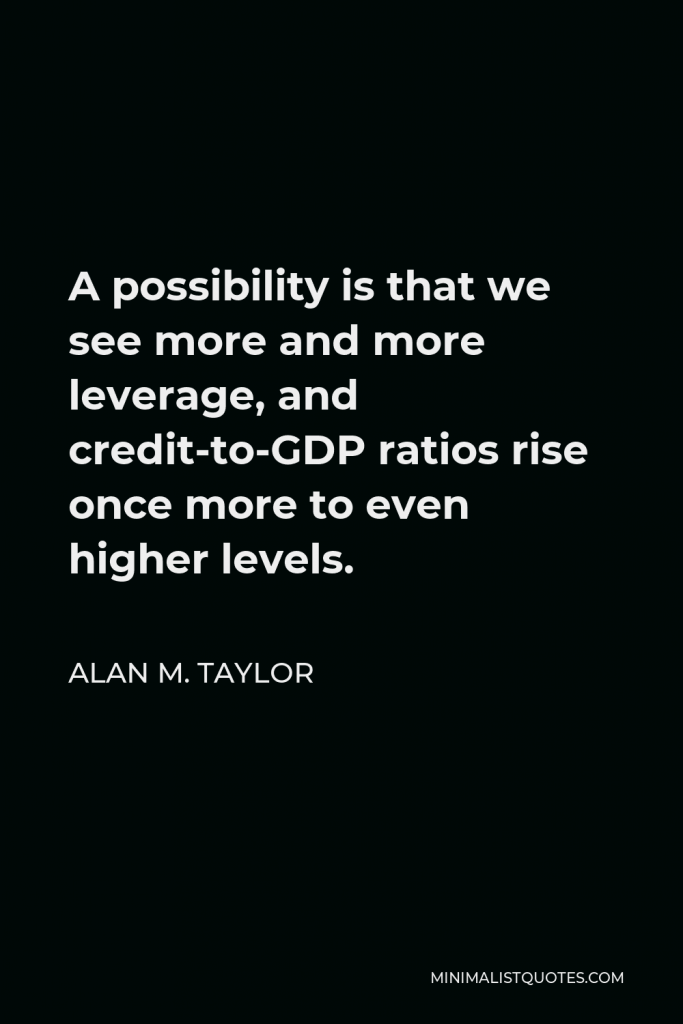

A possibility is that we see more and more leverage, and credit-to-GDP ratios rise once more to even higher levels.
ALAN M. TAYLOR -





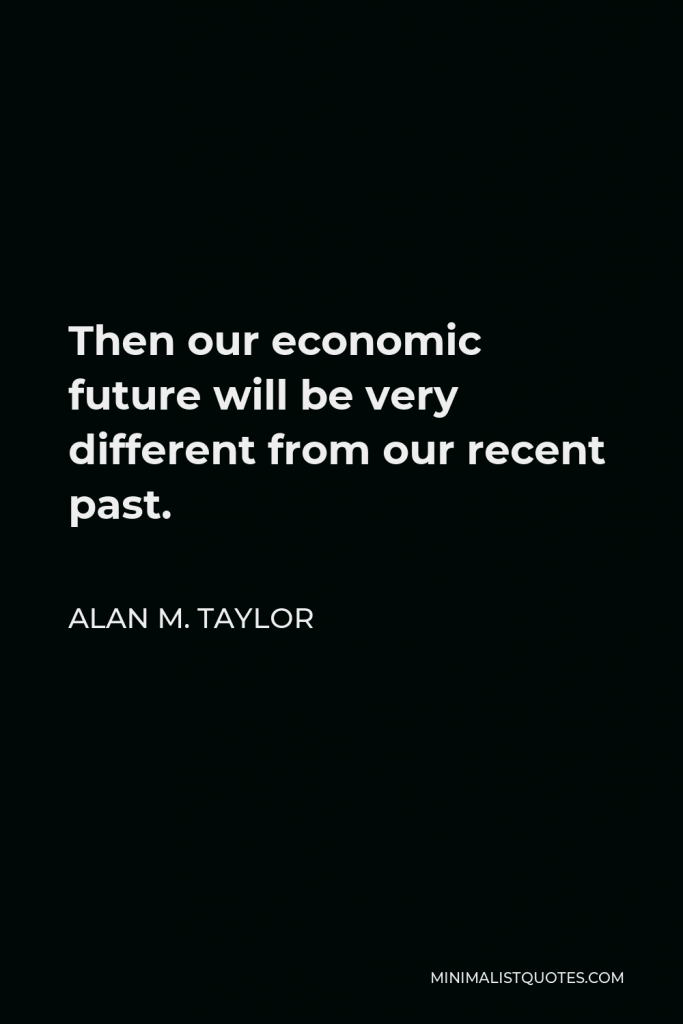

Then our economic future will be very different from our recent past.
ALAN M. TAYLOR -





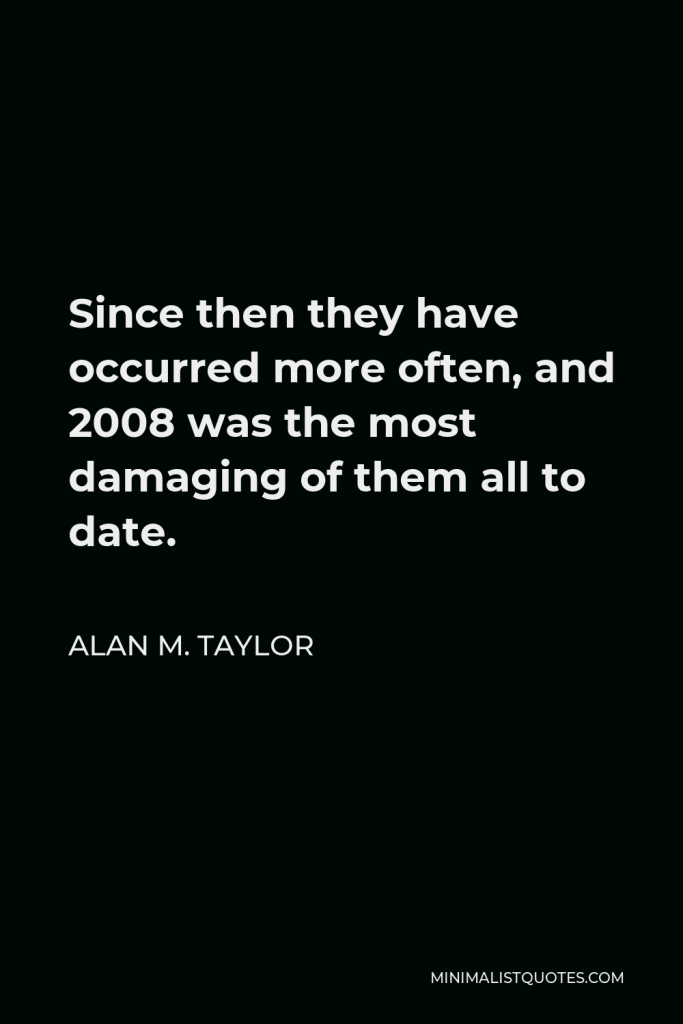

Since then they have occurred more often, and 2008 was the most damaging of them all to date.
ALAN M. TAYLOR -







To the security of employment at working age, to the challenge of accumulating for retirement.
ALAN M. TAYLOR -





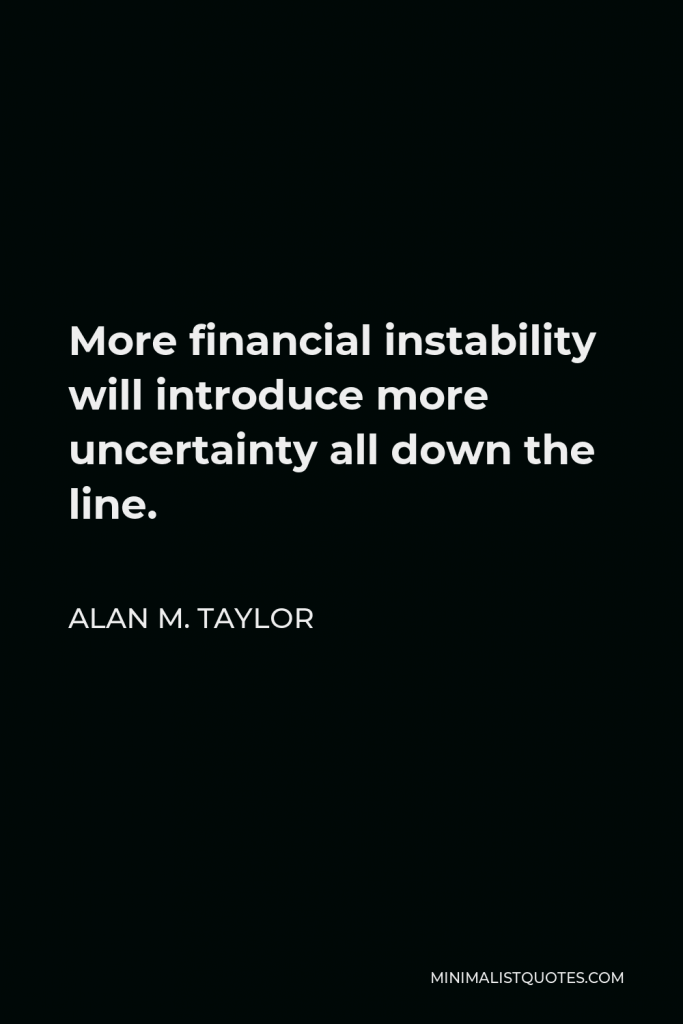

More financial instability will introduce more uncertainty all down the line.
ALAN M. TAYLOR -





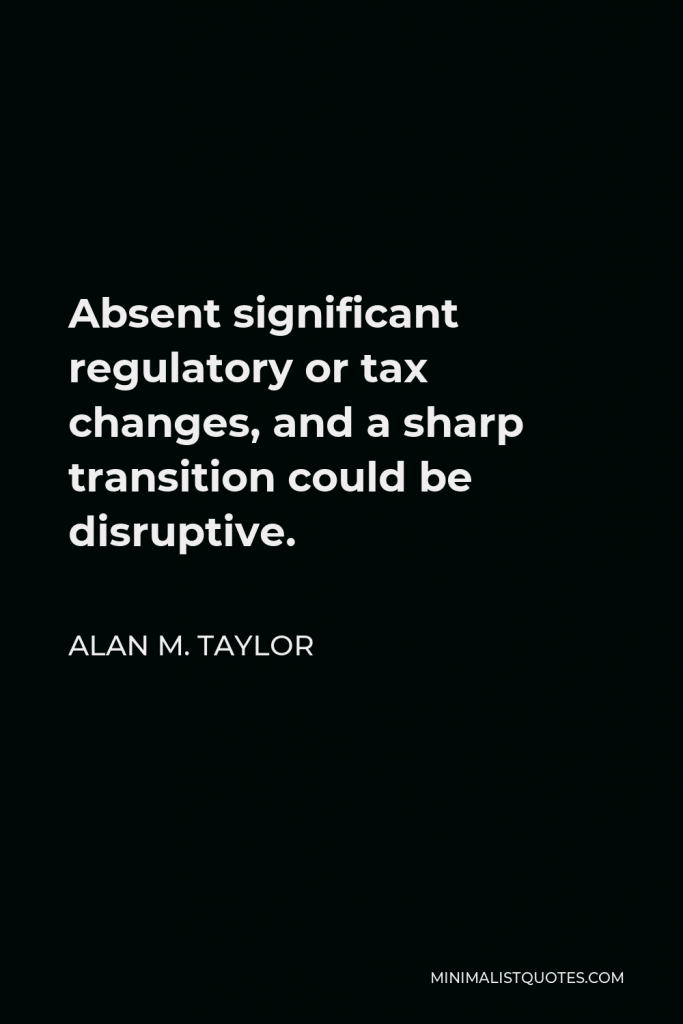

Absent significant regulatory or tax changes, and a sharp transition could be disruptive.
ALAN M. TAYLOR -





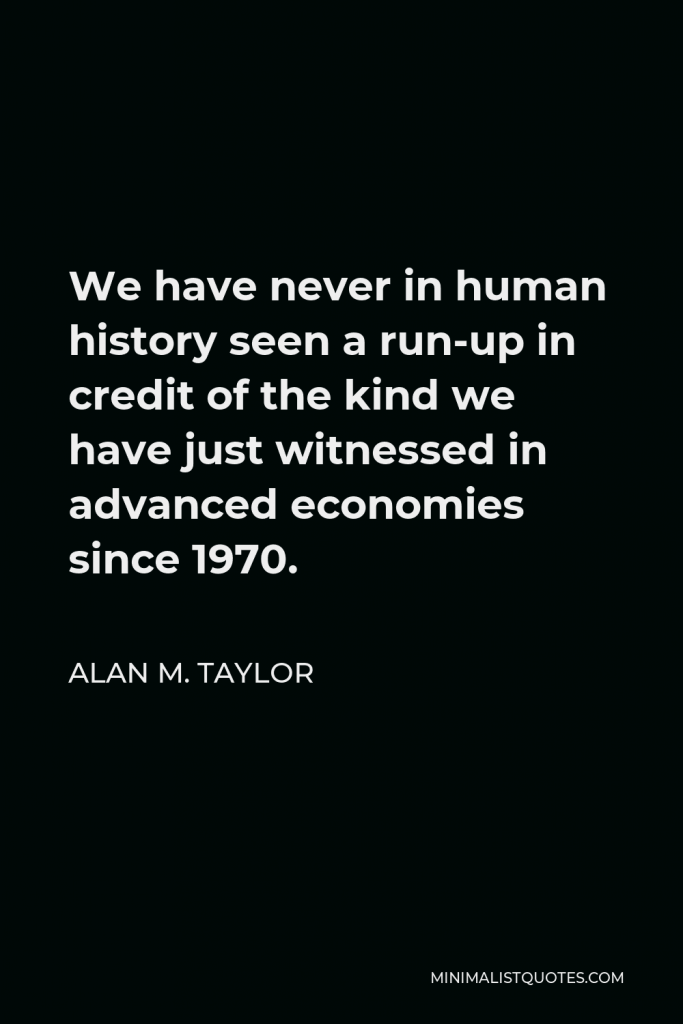

We have never in human history seen a run-up in credit of the kind we have just witnessed in advanced economies since 1970.
ALAN M. TAYLOR -





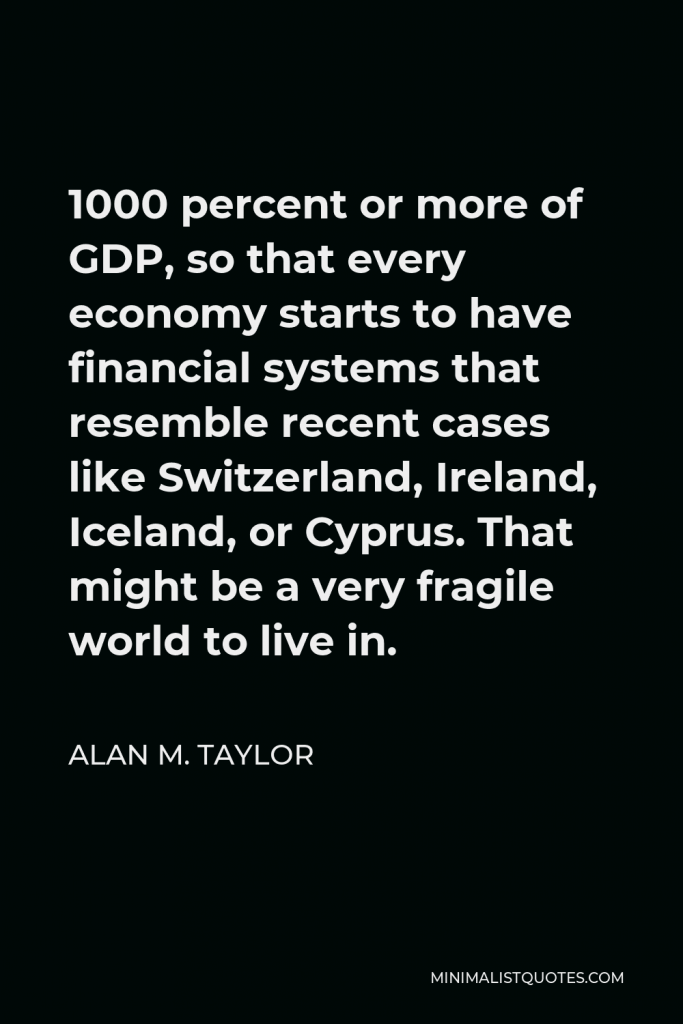

1000 percent or more of GDP, so that every economy starts to have financial systems that resemble recent cases like Switzerland, Ireland, Iceland, or Cyprus. That might be a very fragile world to live in.
ALAN M. TAYLOR -





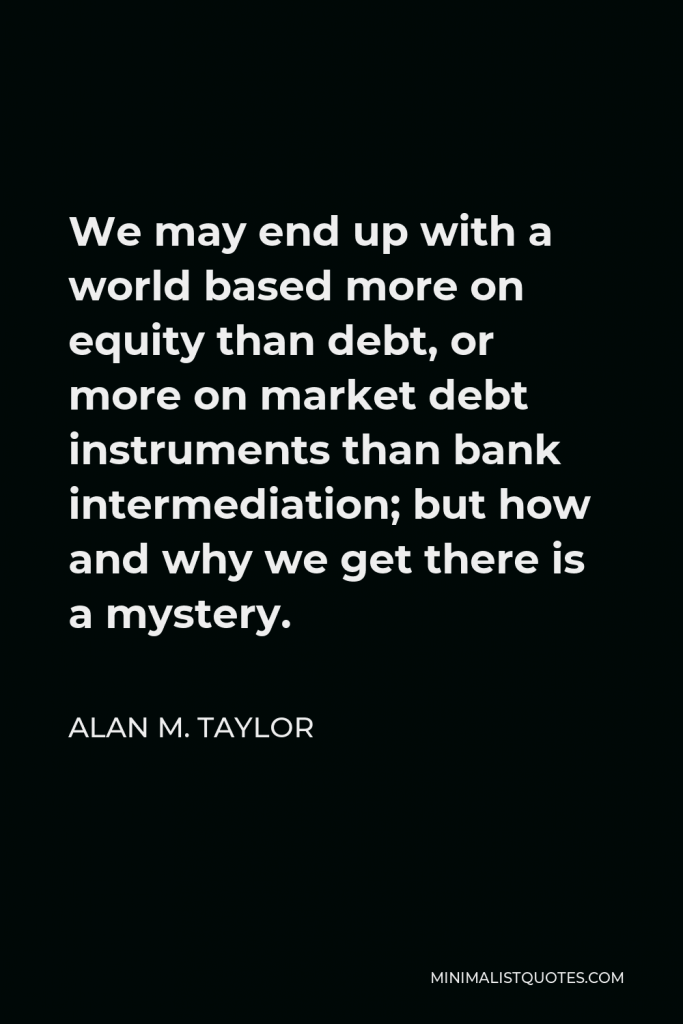

We may end up with a world based more on equity than debt, or more on market debt instruments than bank intermediation; but how and why we get there is a mystery.
ALAN M. TAYLOR -





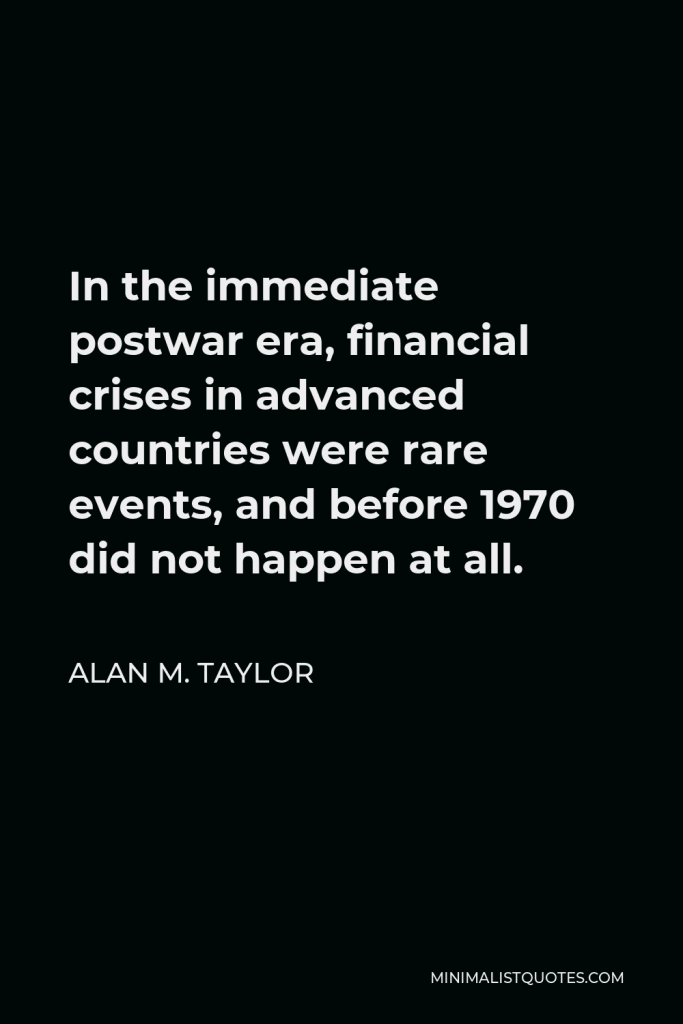

In the immediate postwar era, financial crises in advanced countries were rare events, and before 1970 did not happen at all.
ALAN M. TAYLOR -







Macroeconomic stability will be more elusive and that will affect all of our lives: from the risks many will face in childhood.
ALAN M. TAYLOR -





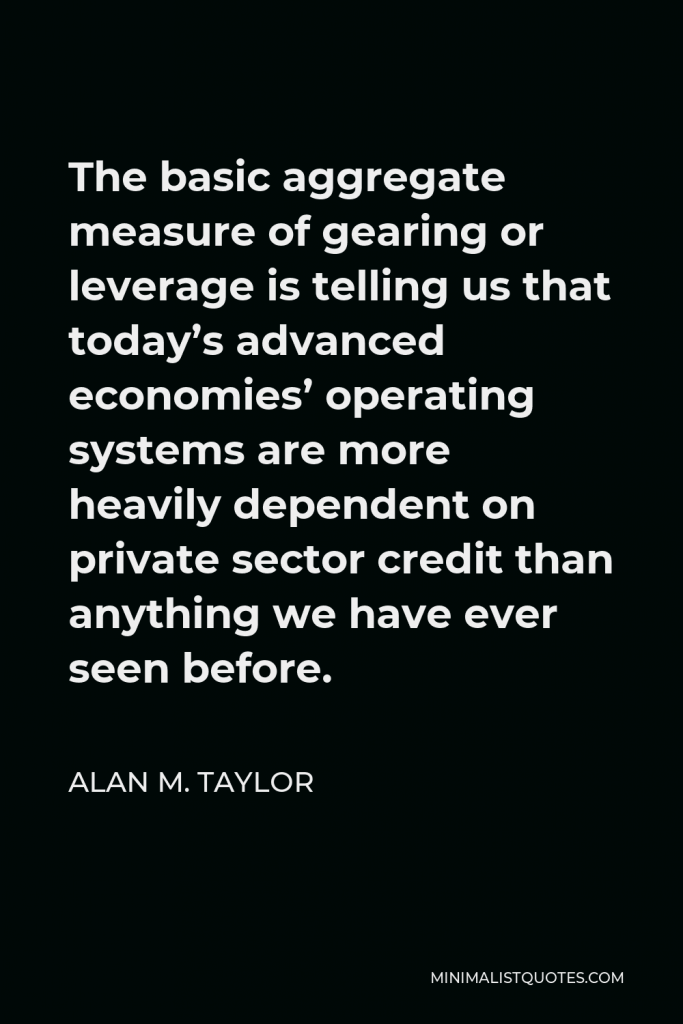

The basic aggregate measure of gearing or leverage is telling us that today’s advanced economies’ operating systems are more heavily dependent on private sector credit than anything we have ever seen before.
ALAN M. TAYLOR -





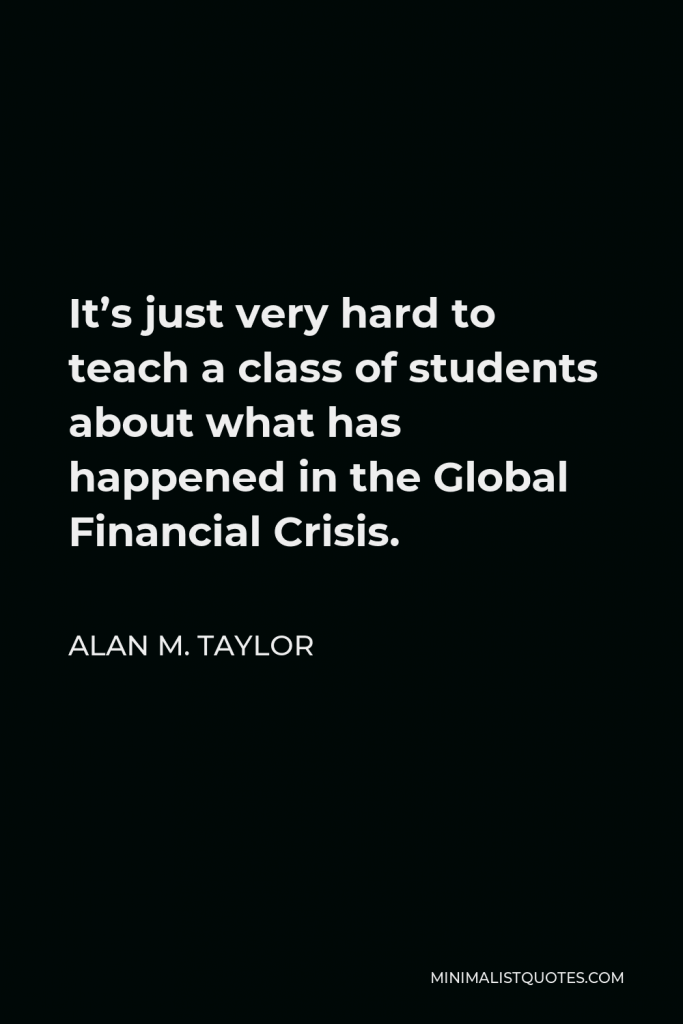

It’s just very hard to teach a class of students about what has happened in the Global Financial Crisis.
ALAN M. TAYLOR
